Surgery

Dental implants XiVE German production presented on the Russian market for a long time - this brand belongs to the premium segment and, accordingly, for the installation of such implants will have to pay a pretty tidy sum. However, is there a tangible difference between expensive XiVE and implants, for example, the average price category? And are German implants really as good in practice as advertised - let’s understand ...
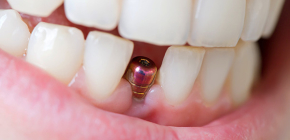
If you believe the advertising of dental clinics, the average service life of dental implants is almost 20-30 years, and even the whole life of the patient. However, in fact, the guarantee of the clinic for installed implants is usually given only for a couple of years, and therefore, a completely natural question arises: what, in fact, causes such a significant difference in terms? Let's see how much dental implants can actually serve, what factors affect it and what the patient can do,to avoid unwanted problems a couple of years after implantation ...
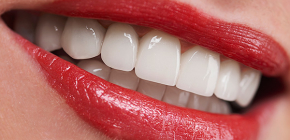
Nowadays, minimally invasive tooth implantation techniques are becoming increasingly popular. Moreover, some clinics have gone further and are already actively advertising non-invasive dental implantation, which is allegedly carried out without cuts in the gums and even almost without bloodshed. But how is this possible? How can an implant, which is, in fact, a titanium screw, be installed non-invasively in the jaw bone, covered with soft gum tissue? On how not to confuse advertising tricks with the actual state of affairs, we will continue and talk ...

Some people mistakenly believe that dental implants are harmful to health and not all lucky people are well acclimatized. And how many horror stories on this topic on the Internet - do not count: they say, implants in the maxillary sinus are sometimes pierced because of a medical error, and the titanium screw can go out into the nasal cavity, orbit of the eye is sometimes damaged, and terrible inflammation develops with gangrene of the jaw.But what about the situation in reality - can the installation of implants really be harmful to the patient's health? Let's understand ...
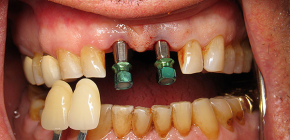
For many years, it was believed that the chances of a successful outcome of dental implantation in patients with periodontitis and periodontal disease are generally small — the loss of bone tissue and the presence of foci of infection in adjacent teeth created high risks of rejection of the implantable structure. However, the success of modern dentistry has made its own adjustments, and today the main question boils down to the clinical situations in which certain technologies and implantation systems can be applied, so that the success of treatment is maximum, and the risks of complications are minimal ...
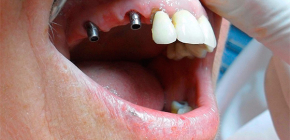
The procedure of dental implantation, as well as any kind of surgical intervention, is associated with a certain risk of developing unpleasant complications. However, information on the Internet about these complications is often so distorted and exaggerated that, in impressionable people, they can simply discourage every desire to have prosthetics onimplants: some write about terrifying rejection, bleeding, suppuration, terrible swelling on the floor of the face, etc. Let's see how in reality all this can happen, what adverse outcomes are possible and, most importantly, how to protect yourself from them as much as possible ...
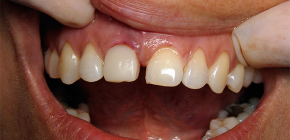
Despite significant advances in dentistry, engraftment of dental implants does not always proceed smoothly, and in rare cases it is possible for the body to reject artificial material. The process of rejection can begin as early as the first days after the implant is installed, or it can be initiated by certain factors even 10 years after the operation. Let's look at what causes can lead to dangerous inflammation (periimplantitis), what symptoms it usually accompanies, and what can be done to ensure that engraftment goes maximally quickly and without complications ...
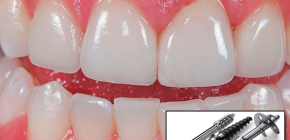
The principles of basal implantation were invented long ago: back in the 60s of the last century, and improved and adapted only in the 90s.In Russia, they started talking about it only at the beginning of the 21st century, and the active implant placement occurred in 2010-2013. The author's methodology of the Swiss PhD Stefan Ide caused discontent among many patients in his hands and caused a lot of controversy around the basal implants - some dentists spoke in favor of this system, but there were also many experts against it. Literally in recent years, basal implantation has begun to move actively in Russia, but not by Stefan Ide, but by his students: Russian dentists in the field of implantation. So far this technique is positioned as the newest, exclusive and relatively inexpensive, allowing literally in 3-5 days to return a person the opportunity to chew and smile. However, there are still disputes between dentists around the world about the effectiveness of basal implantation and the prospects for its further widespread introduction into practice ...
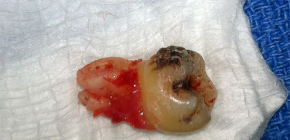
The removal of any tooth, including wisdom teeth, sometimes does not proceed exactly as planned by the dental surgeon initially. There is always the risk of making a mistake, the consequences of which the patient will inevitably feel either immediately or a little later when he comes home.We will continue to talk about such problematic, unpleasant and dangerous situations that may arise both during the wisdom tooth extraction procedure and already after it, ...

After the dentist-surgeon has removed a tooth, a wound in the gum remains in the patient's mouth, which sometimes heals for a very long time (not one month). Than to rinse it and how to make it so that it drags on faster and at the same time does not hurt - this question still worries not only the patients of the clinics, but even the dentists themselves. The fact is that in modern dentistry, opinions on mouth rinsing after the procedure of tooth extraction were divided: diametrically different approaches to solving the same problem appeared - we will continue to look at them ...
